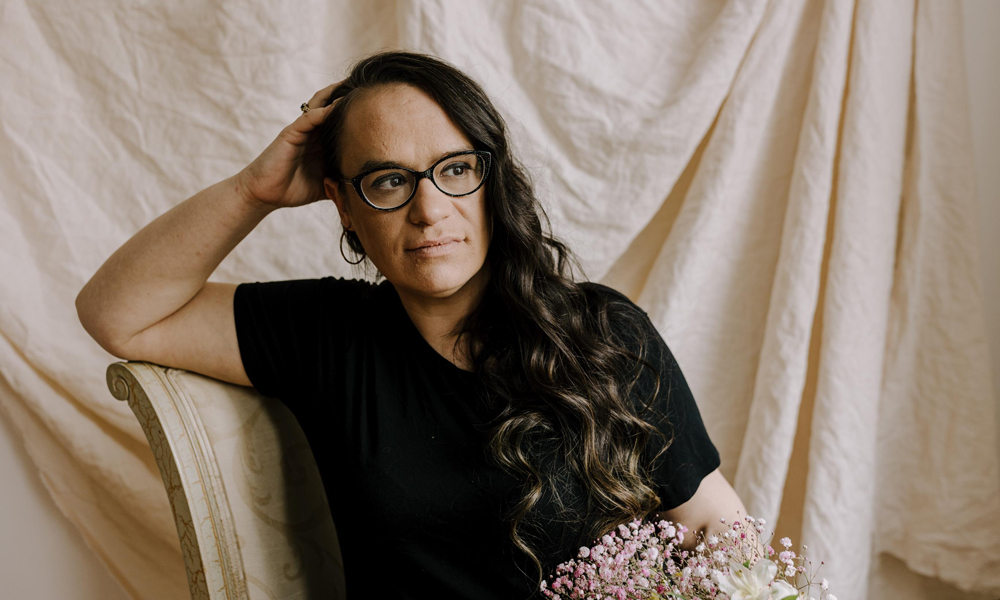Brittany has been living with HIV for nearly two decades, during which time she has become a fierce advocate…
Although there is no cure for HIV infection, significant strides and scientific enhancements have helped improve the quality of life for people living with HIV. Women living with HIV have specific needs as HIV affects them differently than men, often facing more stigma and discrimination as a result of their status. To learn more, we had the privilege of speaking with Brittany, a woman who has courageously navigated life with HIV for the past 17 years.
Brittany was diagnosed with HIV in 2006 at the age of 20, when she was 36 weeks pregnant with her first child. Prior to her diagnosis, Brittany had already experienced stigma due to her struggles with substance use, along with enduring gender-based violence and incarceration. However, the stigma she encountered during those times pales in comparison to the profound stigma she has faced following her diagnosis.
Since being open about her status, Brittany has faced stigma, particularly when interacting with healthcare professionals. In one instance she shared with IN, Brittany recalled a massage therapist to whom she had hesitantly disclosed her HIV status; the therapist left the treatment room and then returned with rubber gloves, which was an incredibly dehumanizing experience. But Brittany empowered herself after the situation by writing a letter to the therapist’s supervisor and the clinical director, educating them about HIV and directing them to resources. This is just one example of her commitment to leveraging education to dispel misinformation and combat stigma that often surrounds HIV.
We spoke with Brittany about how having an open dialogue and an ongoing relationship with her healthcare team have been critical to navigating her diagnosis and her journey living with HIV.
What stigma did you face after your HIV diagnosis, and how did you manage it?
It ebbs and flows. The biggest part about accepting stigma is embodying who I am and being HIV positive – it is no different than any other health issue. In my fourth and fifth years into my diagnosis, I had two more kids. This decision came with additional stigma, as it was a conscious choice to have additional children knowing I had HIV. But I wanted to show the world I could support children even though I was HIV-positive and that women living with HIV, when supported by healthcare professionals, can have happy healthy, HIV-free babies. Addressing stigma is addressing the narrative of HIV and the misinformation about it. I wouldn’t change being open about my status for the world, but there will always be an opportunity for people to cause harm because of ignorance – stigma has allowed me to realize my voice and use it to fight back.
Can you elaborate on your experience being pregnant and receiving your diagnosis, and the importance of having access to health care during your pregnancy and beyond?
When I was diagnosed, I was terrified. Being a young mother and not knowing what was going to happen with my pregnancy and baby was very hard. It’s important to have ongoing support throughout your pregnancy to ensure the best outcome for you and your child. With my younger children, I found myself teaching my OB/GYN about how to deliver a baby properly when the mother has HIV, and I helped that hospital develop a protocol for delivering babies whose mothers are HIV-positive. My two youngest kids actually set the precedent for how the hospital was going to manage delivering future babies with HIV-positive mothers.
How important is it for people living with HIV to have access to affordable and quality health care?
People who have access to care live longer lives and feel better supported. In my experience, working with your care provider and support network helps you have more positive health outcomes, and you’re less likely to have a higher viral load if you are getting good-quality care. With stigma-free care, we see better outcomes.
Based on your experience, why is it important to have an open dialogue with your general practitioner?
An open dialogue allows your healthcare team to support you throughout your journey with HIV, and helps you receive women-centred care and care that meets your needs. The nurse I met after diagnosis is the same nurse I’ve had now for 17 years. Building a strong relationship with your care provider is invaluable for your care and HIV journey.
What advice do you have for other women who may be struggling with their HIV diagnosis or managing their HIV status during pregnancy?
There is always support out there, and that support can help you have a healthy pregnancy. Make sure to connect with local support groups and find people with similar experiences. Also, I always encourage women to learn how to advocate for themselves and become familiar with the practices around pregnancy and child delivery when living with HIV.
How has your involvement with your local AIDS service organization [ASO] impacted your life and advocacy work?
The support has been profound. My ASO helped me go back to school and gave me the opportunity to graduate with a diploma in social work. As much as a life without HIV would be easier, my involvement with my ASO has changed my worldview, my values and ethics, and who I want to be in this world and in this lifetime.
If you had to give one piece of advice to your younger self, what would it be?
Take care of yourself – trust yourself.







POST A COMMENT